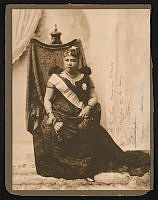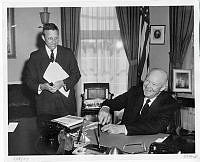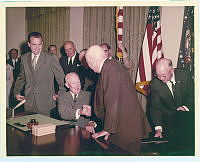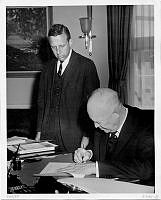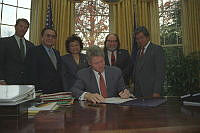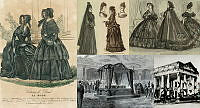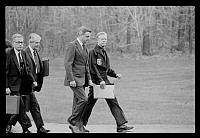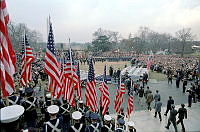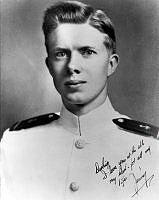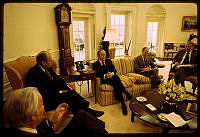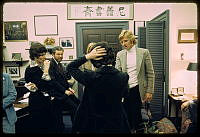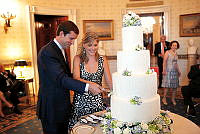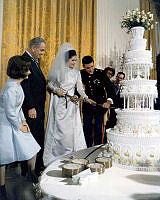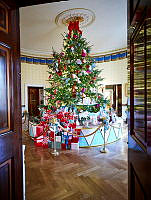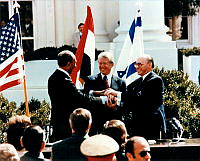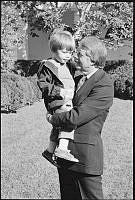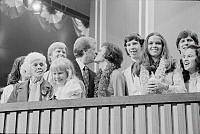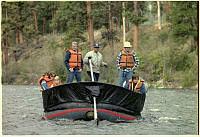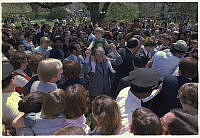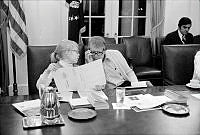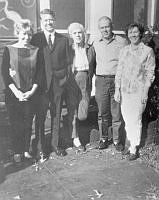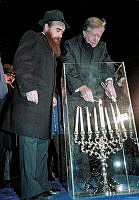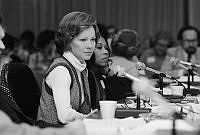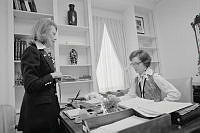Presidential Funerals
Copyright © White House Historical Association. All rights reserved under international copyright conventions. No part of this article may be reproduced or utilized in any form or by any means, electronic or mechanical, including photocopying, recording, or by any information storage and retrieval system, without permission in writing from the publisher. Requests for reprint permissions should be addressed to books@whha.org
Before the death of William Henry Harrison in 1841, there was no established form for official mourning and funerals of presidents who died in office. However, it was clear that the death of a president called for a formal ceremony with symbolism suitable to the dignity of the state. The White House was heavily draped in black. The funeral ceremony was simple and was held in the East Room and attended only by invitation. The United States Marine Band played dirges as the coffin was mounted on a great black and white funeral car and during the procession out to Congressional Cemetery where the coffin was placed in a public vault, a temporary receiving chamber until the lingering winter in Ohio had passed, and it was a more appropriate time to send Harrison's remains home. The 30-day ceremonials surrounding the death of Harrison were modeled after royal funerals establishing precedents, revived and reshaped to suit changing times, whenever one of his successors has died in office.
For additional information, see William Seale's The President's House, White House Historical Association, 1986, or Brian Lamb's Who's Buried in Grant's Tomb, C-SPAN, 2000.

Robert F. Kennedy, Jacqueline Kennedy, and Edward Kennedy lead mourners from the White House to meet the caisson carrying President Kennedy's remains, November 25, 1963.













